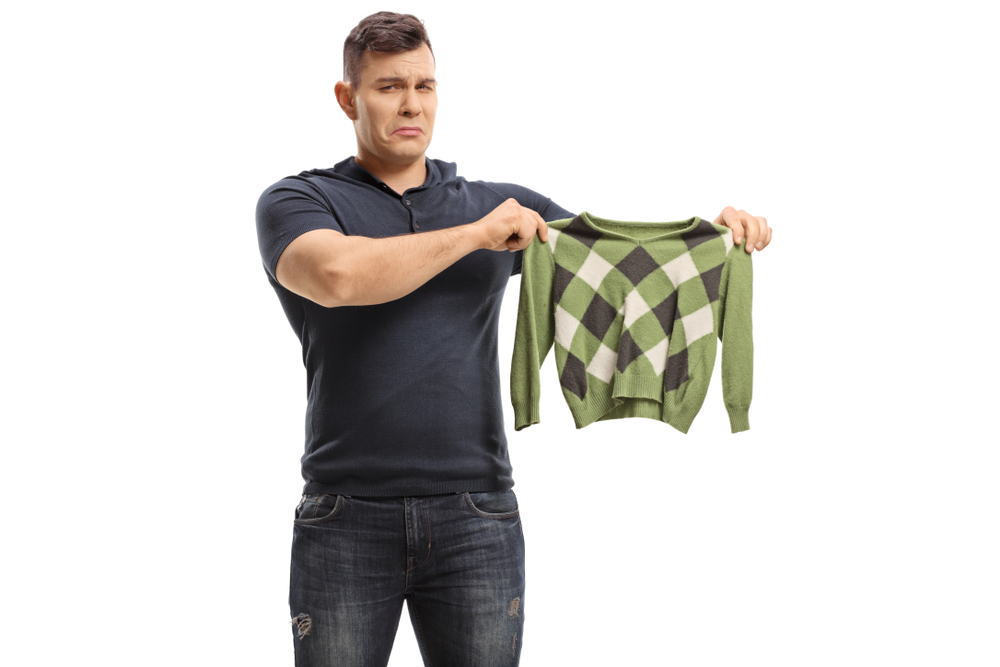How To Prevent Clothes From Shrinking with Champs Cleaners’ Wash and Fold Services

Clothes can shrink for a variety of reasons, most of which are related to the fibers’ reaction to heat, moisture, and mechanical action during the washing and drying process. Champs Cleaners knows how to prevent clothes from shrinking with our Wash and Fold Services.
Why Clothes Shrink
To prevent clothes from shrinking, let’s go over how they shrink in the first place. Clothes shrinking can be attributed to several factors, with heat being one of the most common. When exposed to high temperatures, the fibers in a fabric, especially natural ones like cotton, wool, and silk, tend to tighten and contract. This effect is particularly noticeable in wool, where heat and moisture cause the fiber scales to interlock, leading the fabric to felt and shrink. Moisture also plays a significant role in shrinking clothes. Fabrics made of natural fibers can absorb water and swell. As they dry, they often contract, ending up smaller than their original size, with the extent of shrinking varying based on the fiber type, fabric weave, and manufacturing process.
Additionally, the mechanical action of washing, known as agitation, contributes to shrinking. This process can stretch and pull fibers, which tend to return to their original, tighter state upon drying, especially in machines with intense agitation. Relaxation shrinkage occurs when the tension applied to yarns and fabrics during manufacturing is released upon exposure to water and heat, causing fibers to return to their relaxed state. In contrast, felting shrinkage is specific to animal hair fibers like wool. These fibers, when exposed to heat, moisture, and agitation, tangle and mat together, shrinking and thickening the fabric due to the surface scales of the fibers interlocking. Differential shrinkage can happen with blended fabrics, as different fibers may shrink at varying rates; for instance, a cotton-polyester blend might shrink unevenly if the cotton fibers shrink more than the polyester ones. Lastly, poor quality control during manufacturing, particularly inadequate pre-shrinking processes, can lead to significant shrinking in garments after their initial washes, highlighting the importance of quality practices in garment production.
10 Ways We Prevent Shrinking
Champs Cleaners’ Wash and Fold Service employs several techniques and practices for how to prevent the shrinking or stretching of clothes from the washing and drying process. These practices are crucial in ensuring that clients’ clothing maintains its shape, size, and texture after laundering.
- Fabric-Specific Cleaning Protocols: Different fabrics require different cleaning techniques. Champs Cleaners likely has a set of protocols for handling various types of materials – from delicate silks to sturdy cottons. By tailoring their cleaning approach to the specific needs of each fabric type, they reduce the risk of damage, including shrinking or stretching.
- Temperature Control: One of the primary causes of shrinking and stretching in laundry is incorrect water temperature. Champs Cleaners’ professionals understand the ideal temperature settings for different fabric types. For instance, hot water might be avoided for materials prone to shrinkage, while cooler temperatures are used for delicate items.
- Gentle Detergents and Softeners: The choice of detergents and fabric softeners plays a significant role in maintaining fabric integrity. Harsh chemicals can weaken fibers, leading to stretching or shrinking. It’s likely that Champs Cleaners uses gentle, high-quality detergents and softeners that clean effectively without damaging fabrics.
- Advanced Washing Machines: Modern, high-efficiency washing machines have settings that are designed to minimize fabric stress. These machines often have gentle wash cycles that clean effectively without aggressive agitation, reducing the likelihood of stretching or shrinking.
- Controlled Drying Techniques: Just as with washing, the drying process is crucial. Over-drying or high heat can cause significant shrinking. Champs Cleaners probably uses moisture-sensing dryers that can automatically shut off when the clothes are adequately dry, or they may air-dry certain items to prevent heat damage.
- Professional Training: The staff at Champs Cleaners are likely well-trained in textile care and understand how to handle different materials properly. This expertise is a significant factor in preventing mishaps like shrinking or stretching.
- Pre-Wash Inspection: Before washing, items are likely inspected for any specific care instructions on the label and for understanding the nature of the fabric. This step ensures that each item is treated in the most appropriate manner.
- Post-Wash Care: After washing and drying, items may be reshaped or stretched gently (if needed) to retain their original size and form. This is especially true for knitwear and other stretch-prone materials.
- Feedback and Adaptation: If a client reports issues with shrinking or stretching, a good service provider like Champs Cleaners will likely take this feedback seriously and adapt their process accordingly, either on a case-by-case basis or as a general practice improvement.
- Regular Maintenance of Equipment: Ensuring that all washing and drying equipment is in excellent condition and regularly maintained is crucial. This helps in consistent and reliable laundry care.
By incorporating these methods into their Wash and Fold Services, Champs Cleaners likely ensures that the risk of shrinking or stretching of materials is minimized, providing clients with a reliable and high-quality service. Contact Champs Cleaners today at one of our 4 locations in Clarkston, Flint, and Fenton, MI.
